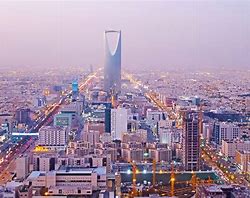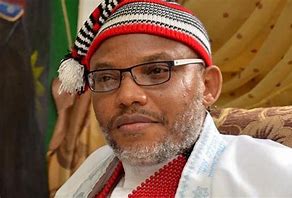Agriculture, industry and services over 90% of GDP
Unabating security challenges in the agriculture sector and poor crude oil production capacity in the third quarter of this year have slowed the pace of economic growth the country witnessed during the period.
The National Bureau of Statistics (NBS), yesterday, released the Gross Domestic Product (GDP) data of the third quarter, saying the economy grew by 4.03 per cent in the period.
Indeed, insecurity concerns continue to reflect in poor food production, leading to higher inflation in addition to weak oil production, as a result of theft, pipeline vandalisation and maintenance challenges.
Though the nation in the third quarter of 2021 recorded an average daily oil production of 1.57 million barrels per day (mbpd), lower than the daily average production of 1.67mbpd recorded in the same quarter of 2020 by 0.10mbpd and lower than the second quarter 2021 production volume of 1.61mbpd by 0.05mbpd, according to the NBS, Nigeria’s output has remained very poor.
Data from the Organisation of Petroleum Exporting Countries (OPEC) showed that production in the last few months has been below budgetary benchmark dropping to 1.37 million barrels a day in October, 261,000 bpd below its OPEC+ quota.
In September, the country pumped 1.45 million barrels a day, up from the 1.29 million barrels it recorded in August. The country’s production remains undermined by disruptions and maintenance challenges, even as sustained subsidy payments and lower production continue to take a toll on the country’s forex reserves and fiscal position.
With the positive GDP growth, the economy has demonstrated sustained improvement in the past four quarters after it exited the last recession.
Output slid -6.1 per cent and -3.62 per cent in Q2 and Q3 of 2020 to plunge the economy into the second recession in the life of the current administration.
The Q3 2021 growth rate was higher than the -3.62 per cent growth rate recorded in Q3 2020 by 7.65 percentage points and lower than 5.01 per cent recorded in Q2 2021 by 0.98 percentage points.
On a quarter-on-quarter basis, real GDP grew at 11.07 per cent in Q3 2021 compared to Q2 2021, pointing to a higher economic activity than the preceding quarter, the NBS noted.
According to the report, the nominal value of the GDP stood at N45.11 trillion in the third quarter of 2021. This was much higher than the performance of the comparative period last year 2020, which was N39.09 trillion, indicating a year-on-year nominal growth rate of 15.41 per cent.
But in real terms, the monetary value of economic activities in the quarter under reference was N18.54 trillion. The figure was N718.57 billion higher than N17.82 trillion recorded in Q3 of last year.
But the output of Q3 2021 was higher by N1.85 trillion compared to the preceding quarter when aggregate real GDP was N16.69 trillion. Average daily oil production of 1.57 million barrels per day (mbpd) was recorded in the quarter, showing a lower performance compared to 1.67mbpd recorded in Q3 2020.
Non-oil sector activities recorded growth of 5.44 per cent in the period, an improvement from -2.51per cent reported in third-quarter 2020. The non-oil performance of Q3 2021 was, however, 6.74 per cent behind Q2 2021.
During the quarter, oil contributed 7.49per cent to the economy from 8.73 per cent contributed in Q3 of last year. Also, the non-oil sector accounted for 92.51per cent of the GDP, an increase from 91.27per cent recorded in last year’s Q3.
Transportation and storage, financial and insurance sectors, as well as electricity, gas, steam/air-conditioning supply, showed strong growth during the quarter.
Thus, the fastest growing sector in real terms during the period include rail transport and pipeline (59.93 per cent), metal ores (54.92 per cent), air transport (33.31 per cent), financial institutions (25.5 per cent), road transport (21.11 per cent); water transport (16.3 per cent) and electricity and trade (11.90)
Services, in its tradition, came very strong, accounting for 8.41 per cent of the GDP growth. Industry grew by -1.63 per cent, an improvement from its -6.12 per cent growth in Q3 of 2020.
Agriculture, industry and services contributed 29.94, 20.41 and 49.65 per cent respectively to GDP. Reacting, an economist and CEO of the Centre for The Promotion of Private Enterprise (CPPE), Dr. Muda Yusuf, said: “It is a welcome development that the positive growth trajectory has been sustained. This is, however, largely a reflection of the progressive normalisation of economic activities. The recovery of sectors that were earlier under lockdown and the restoration of supply chains that were disrupted at the onset of the COVID-19 pandemic.
“There is also a strong base effect as the benchmark year was a period of recession. To accelerate the economic recovery and inclusion processes, current macroeconomic challenges need to be fixed. These include the high inflationary pressure, exchange rate depreciation and liquidity issues in the forex market.”
Muda added that investment climate issues deserve urgent attention. He listed cargo clearing, port congestion, regulatory issues, policy inconsistency and security concerns as some of the challenges that require urgent attention.



